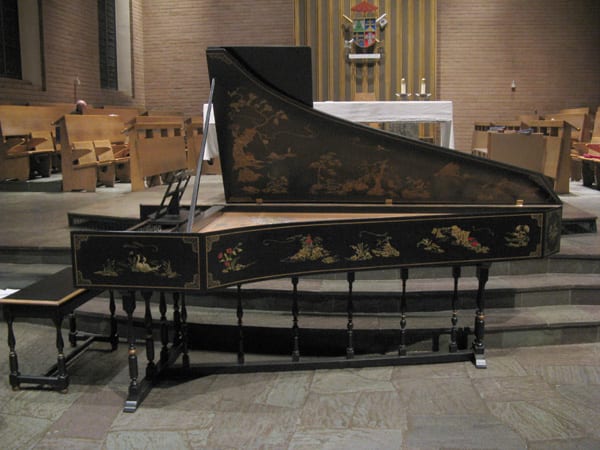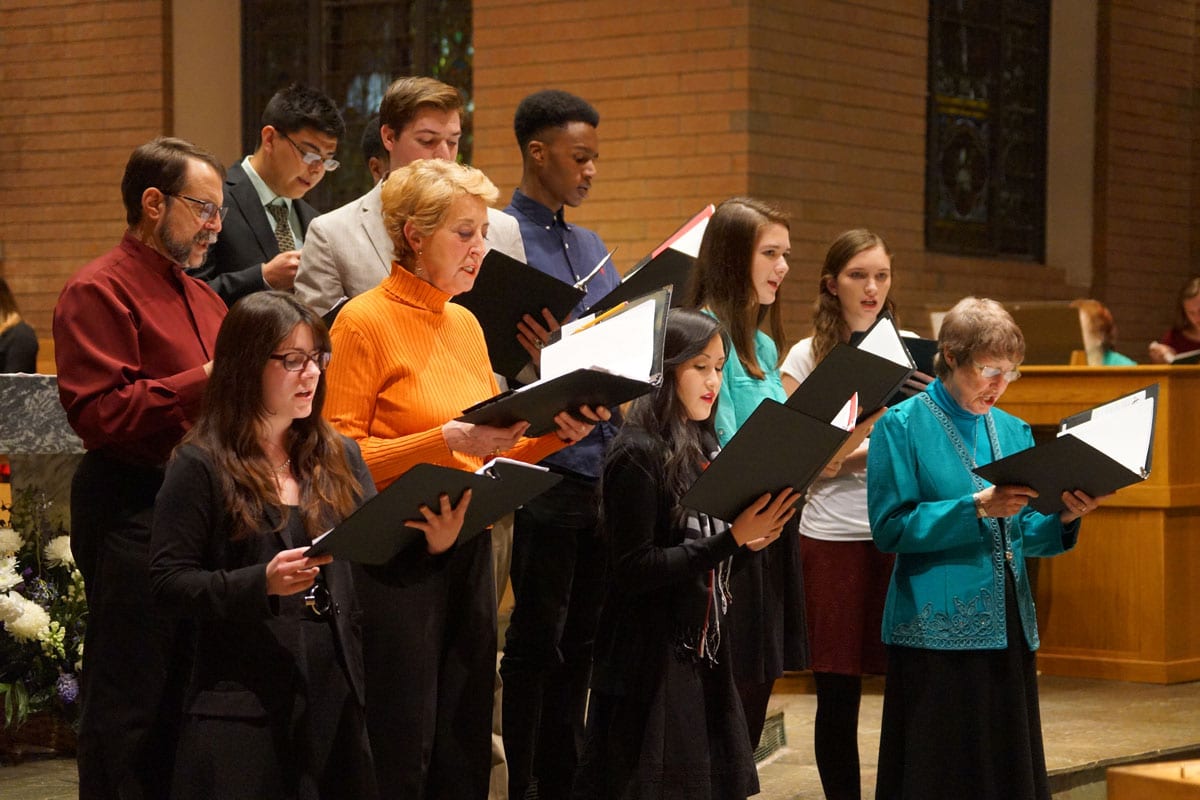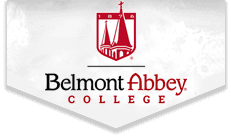The Core is the heart of an Abbey education. Our over-50 credit core includes courses in the history of Western civilization, the classics of Western literature and political philosophy, rhetoric, the natural and social sciences, the Bible, the fundamentals of Catholic theology, and fine arts.
Authors You'll Read
Core AuthorsIn addition to selected books of the Old and New Testaments, the following authors will be read.
| Aristotle | Plato | Homer | Dante | Shakespeare | Hopkins |
| Joyce | St. Thomas Aquinas | Milton | Virgil | Locke | Donne |
| Racine | Rousseau | Sophocles | Cicero | Machiavelli | Yeats |
| Ibsen | Coleridge | Aristophanes | Hobbes | Swift | Aeschylus |
| Chaucer | Eliot | Keats | Paschal | Jefferson | Lincoln |
| St. Augustine | Madison | Newman |
What is a Core Curriculum? And why does Belmont Abbey College have one?
In our day, college and university education is associated with specialized preparation for a career – and as lucrative a one as possible, in order to pay off the high cost of education! Most students today, with good reason, are concerned about one thing: “What should I major in? What program of classes will get me the farthest in life?” Here, “the farthest” is usually defined in terms of finance and sometimes also in terms of personal job satisfaction and social belonging. There is nothing wrong with this kind of reasoning – in fact we encourage it at Belmont Abbey College by our goal to have you “succeed professionally, and be a blessing to yourselves and others.” But this is not the whole story: we have other goals as well: to have you “lead lives of integrity and become responsible citizens.” This goal points to areas of life known under the names of ethics, politics, and theology. Are these real subjects that can be taught and learned, or are they strictly matters of individual or family-inherited opinion? There are also the Fine Arts (drama, music, creative writing, etc.): does anybody really need to understand them if he is not trying to be an artist himself? What about mathematics – should they be studied by those who “hate” math? Should English, world literature, or history be forced upon those who “hate” to write papers? Should a young adult be required to learn more about fields that will probably never contribute to his or her future income?
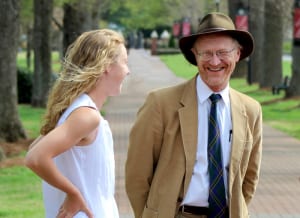 The Core Curriculum is Belmont Abbey’s “yes” answer to all these questions. Many students today object to this: a list of “required courses” resembles High School, and sends the message that 17 – 22 year-old persons, living away from their parents, are not yet fully equipped to be their own masters, choosing only those courses that fulfill their own personal dreams, as currently embraced at that particular age. We entirely agree that College should be a place to begin to fulfill your dreams beyond what happened in High School. And one big part of that is filling you with new dreams – by requiring you to study what you may not understand or appreciate. Unlike High School – where requirements are mandated by the civil governments in each state – at the college level, each institution voluntarily chooses its own set of general requirements, to provide a structured education in accord with the vision of that institution. Accreditation pertains primarily to the academic standards of the special subjects: when it comes to the core curriculum, each college is only obliged to remain faithful to its own mission. Core curriculum offerings, therefore, at any college, are a result of faculty competence and availability and the vision of education that guides each particular institution.
The Core Curriculum is Belmont Abbey’s “yes” answer to all these questions. Many students today object to this: a list of “required courses” resembles High School, and sends the message that 17 – 22 year-old persons, living away from their parents, are not yet fully equipped to be their own masters, choosing only those courses that fulfill their own personal dreams, as currently embraced at that particular age. We entirely agree that College should be a place to begin to fulfill your dreams beyond what happened in High School. And one big part of that is filling you with new dreams – by requiring you to study what you may not understand or appreciate. Unlike High School – where requirements are mandated by the civil governments in each state – at the college level, each institution voluntarily chooses its own set of general requirements, to provide a structured education in accord with the vision of that institution. Accreditation pertains primarily to the academic standards of the special subjects: when it comes to the core curriculum, each college is only obliged to remain faithful to its own mission. Core curriculum offerings, therefore, at any college, are a result of faculty competence and availability and the vision of education that guides each particular institution.
Core Curriculum for Traditional Students
a. Rhetoric 101 Rhetoric, Logic, Grammar, and Writing I
b. Rhetoric 102 Rhetoric, Logic, Grammar, and Writing II (RH 101 is a prerequisite for RH 102)
B. Quantitative Thinking, 3 credits
One of the following, appropriate to the student’s major:
Mathematics 135 Mathematics for Liberal Arts
Mathematics 151 College Algebra
Trigonometry and Pre-Calculus
Any 200-level Mathematics course
Any Statistics course
Any Calculus course
C. Theology, 6 credits
a. Theology 105 Introduction to Scripture
b. Theology 205 Introduction to Theology
D. Philosophy, 6 credits
a. Political Philosophy 211 Classic Texts I
b. Political Philosophy 212 Classic Texts II
E. History, 6 credits
a. History 101 Western Civilization I
b. History 102 Western Civilization II
F. Literature, 6 credits
a. English 211 Literary Classics of the Western Tradition I
b. English 212 Literary Classics of the Western Tradition II
G. Fine Arts, 3 credits
One (or more) of the following:
Art 101 Introduction to Art in Western Civilization I
Art 102 Introduction to Art in Western Civilization II
DA 101 Dance Appreciation
English 104 Creative Writing
English 216 Introduction to Film Criticism
Theater (TA) 108 Introduction to Theatre Arts
Theater (TA) 110 Introduction to Stage Craft
Theater (TA) 150 Acting I
Theater (TA) 112 Theatre Appreciation
Music 101 Music Appreciation
Three credit hours in any one of the following:
Chorus (1 credit)
DA 212 Ballroom (1 credit)
DA 216 Tap (1 credit)
DA 217 Dance Conditioning (1 credit)
Voice (1 credit)
Piano (1 credit)
Organ (1 credit)
H. Natural Sciences, 8 credits
a. One of the following:
Biology 101 General Biology
Biology 201 Cell Biology (Instructor’s permission required)
Biology 231 Organismal Diversity (Instructor’s permission required)
b. One of the following:
Science 110 Physical World
Chemistry 105 General Chemistry
Physics 101 General Physics 1
I. Social Sciences, 6 credits
a. Political Science 201 The U.S. Constitution
b. One of the following:
Criminal Justice 201 Introduction to Criminal Justice
Economics 201 Introduction to Economics I
Psychology 201 Introduction to Psychology
Sociology 201 Principles of Sociology or another psychology or sociology course (Instructor’s permission required)
Each student must complete at least one course designated as “Writing Intensive,” marked with the designation (W) in the course schedule. Students are strongly encouraged to choose one within their major or minor field of study.
K. Global Perspectives Requirement
Students meet the Global Perspective requirement through successful completion of one of the following:
a. Any course among History 102, Theater Arts 108, or Theology 365.
c. Any course approved as meeting the “Global Perspectives” criteria and so designated by the Office of the Registrar.
d. The intermediate level of a modern language (fourth semester of college-level language).
e. Significant study abroad (five weeks or longer).
L. Competency in Technology
ALL Belmont Abbey College students must demonstrate basic computer competency in one of the following ways:
a. Passing the competency exam administered during the first semester and/or periodically upon demand.
b. Successful completion of CS (Computer Studies) 100 or another CS course relevant to the student’s major.
c. Successful completion of a technology-intensive class in the major.
Music at the Abbey
At Belmont Abbey College our Core Curriculum requires the exploration of the fine arts. From Art to Dance Appreciation you have the opportunity to hone your skills or learn something new. A few notable courses include Ballroom Dancing, Creative Writing, Chorus, Introduction to Film Criticism, Introduction to Art in Western Civilization I, Introduction to Stage Craft, Organ, and Piano.
